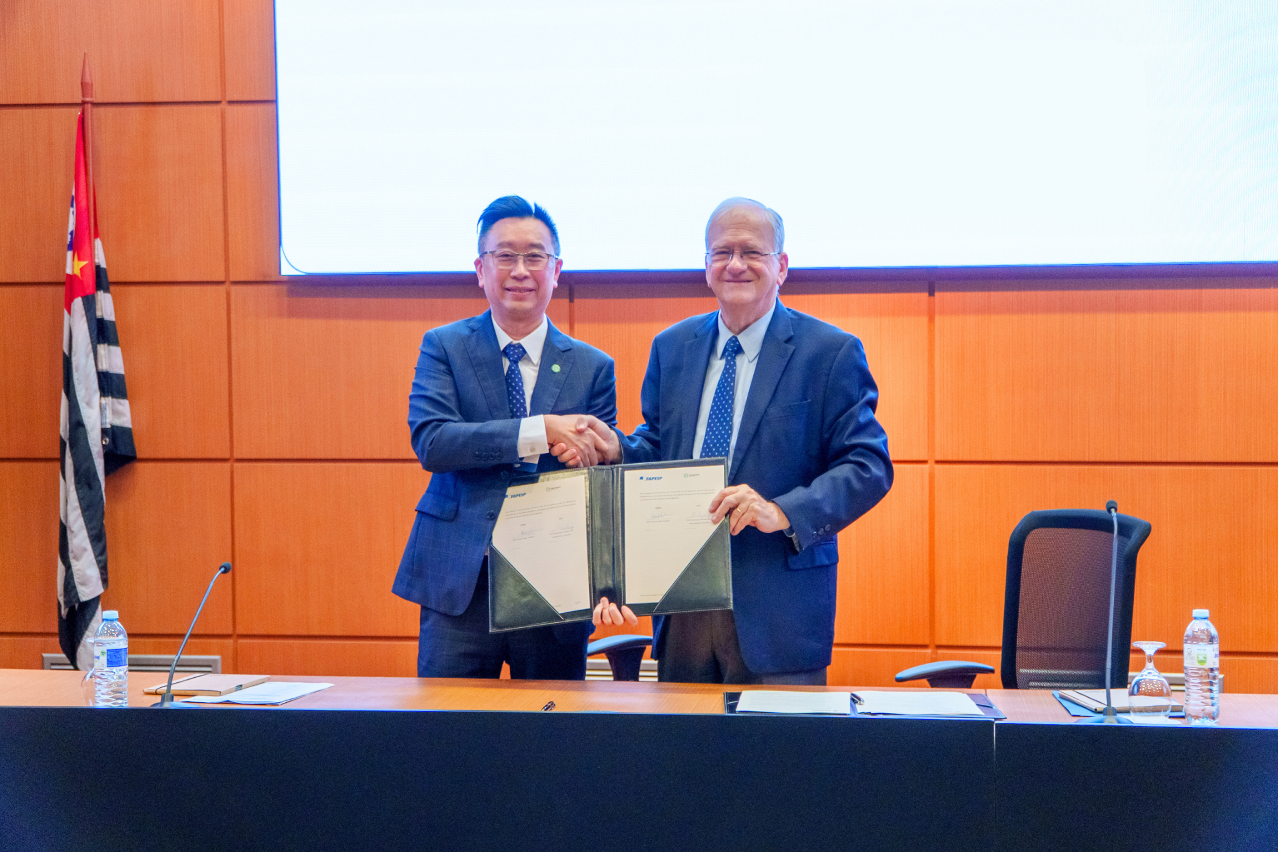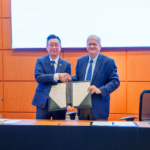 The Macao Science and Technology Development Fund and the São Paulo Research Foundation Officially Sign a Cooperation Agreement
The Macao Science and Technology Development Fund and the São Paulo Research Foundation Officially Sign a Cooperation Agreement
To promote international scientific research cooperation and academic exchange, the Macao Science and Technology Development Fund (FDCT) and the São Paulo Research Foundation (FAPESP) officially signed a cooperation agreement on 3 April 2025. Under this agreement, both parties will jointly launch funding programmes for collaborative research projects, as well as organizing academic seminars, workshops, and exchanges among researchers, with the aim of advancing scientific innovation and strengthening research collaboration between Macao and Brazil.
Expanding Cooperation Across Various Research Fields Between Macao and Brazil
The signing ceremony took place at the auditorium of the São Paulo Research Foundation and was officiated by Mr. Che Weng Keong, President of the Administrative Committee of FDCT, and Mr. Marco Antonio Zago, President of FAPESP. This collaboration further extends Macao's scientific research network with Portuguese-speaking countries. FDCT and FAPESP will jointly support scientific research projects conducted by technology enterprises and higher education institutions in both regions. The funded areas include five key research fields: biomedicine, artificial intelligence, marine technology, space science, and agriculture. Additionally, both parties will co-organise seminars and workshops to enhance academic interaction and encourage reciprocal visits and exchanges among researchers, thereby strengthening talent development and collaborative research.
During the ceremony, the presidents of both institutions expressed high expectations for the cooperation, believing that through the complementarity of resources and strengths, more opportunities for researcher exchanges will be created, thereby fostering the production of more high-level research outcomes.
Sharing Research Outcomes and Programme Information to Facilitate Collaborative Opportunities
Following the signing ceremony, experts and scholars from higher education institutions in Macao and Brazil shared their latest research outcomes in frontier scientific fields covered by the joint funding programme such as biomedicine and artificial intelligence, and discussed potential directions for future cooperation. Representatives from FDCT and FAPESP also introduced the application mechanisms, supported fields, and other funding opportunities under the joint funding programme, providing participating scholars and researchers with concrete information to enhance collaborative opportunities.
Participants raised questions regarding the details of the joint funding programme and engaged in group discussions after the event to further explore potential collaborative research projects. The active exchanges demonstrated a strong intent for cooperation. The signing of this agreement and the academic exchange activities have provided a broader platform for scholar interaction between the two regions and have expanded Macao’s international scientific research network, further reinforcing Macao’s role as a bridge in promoting scientific and technological exchange between China and Portuguese-speaking countries.




